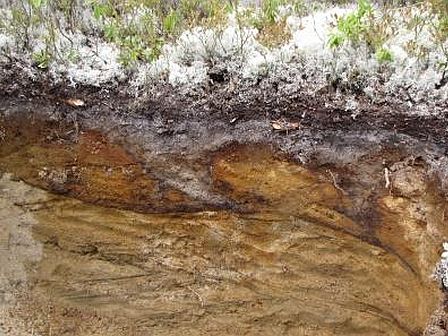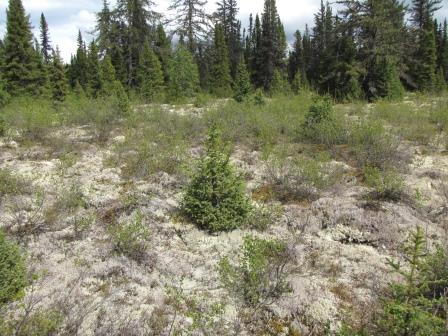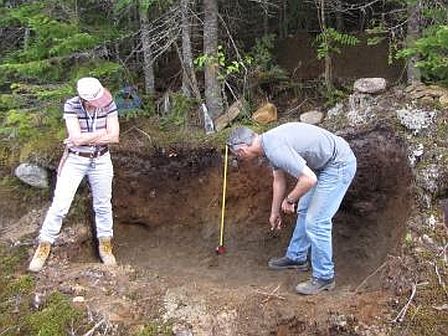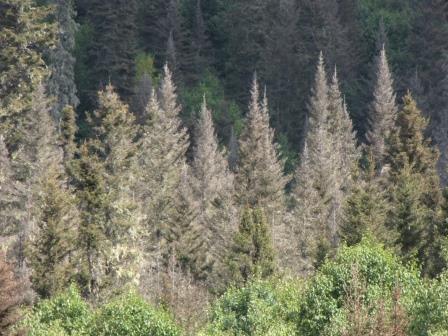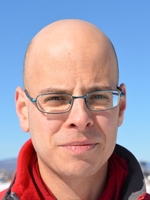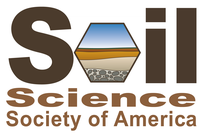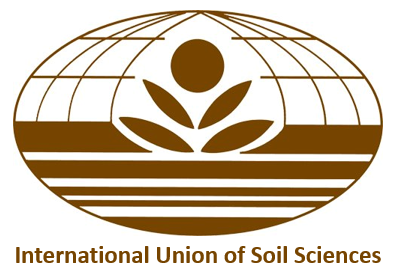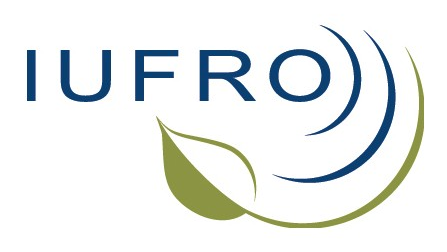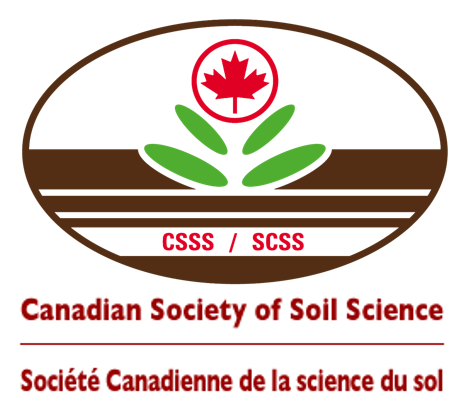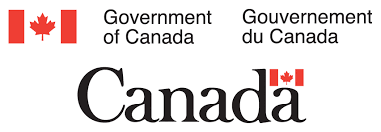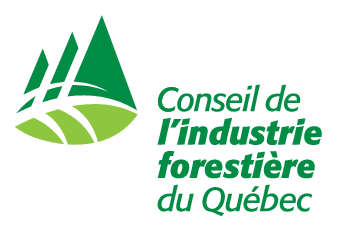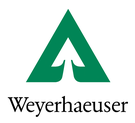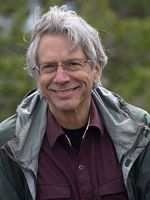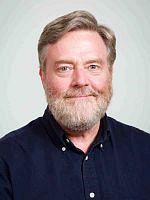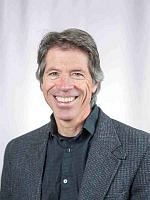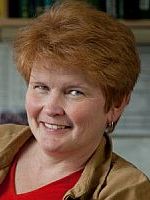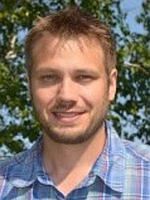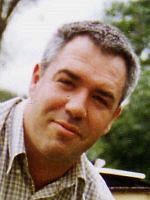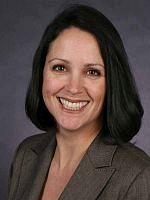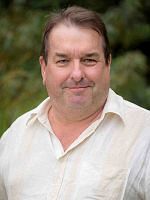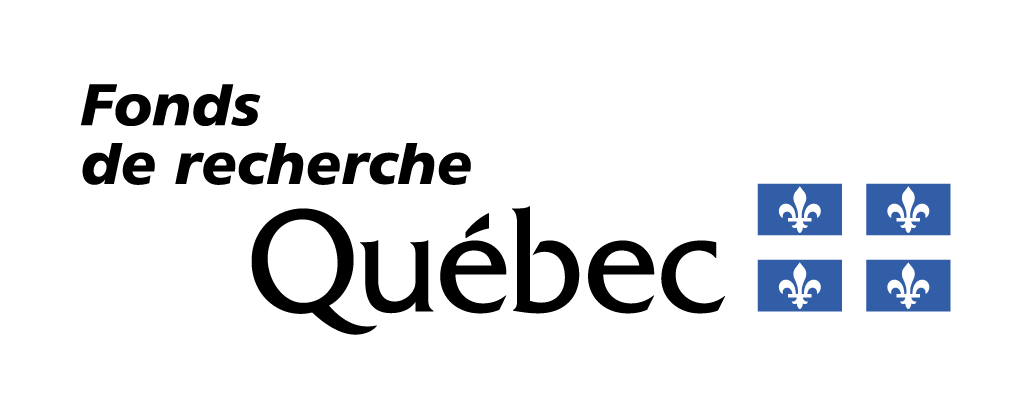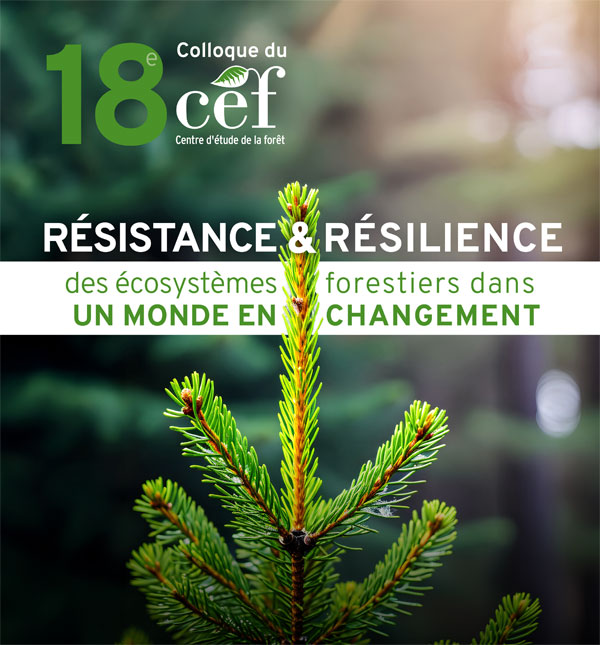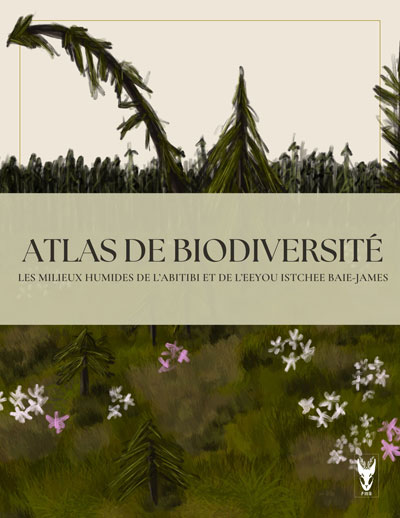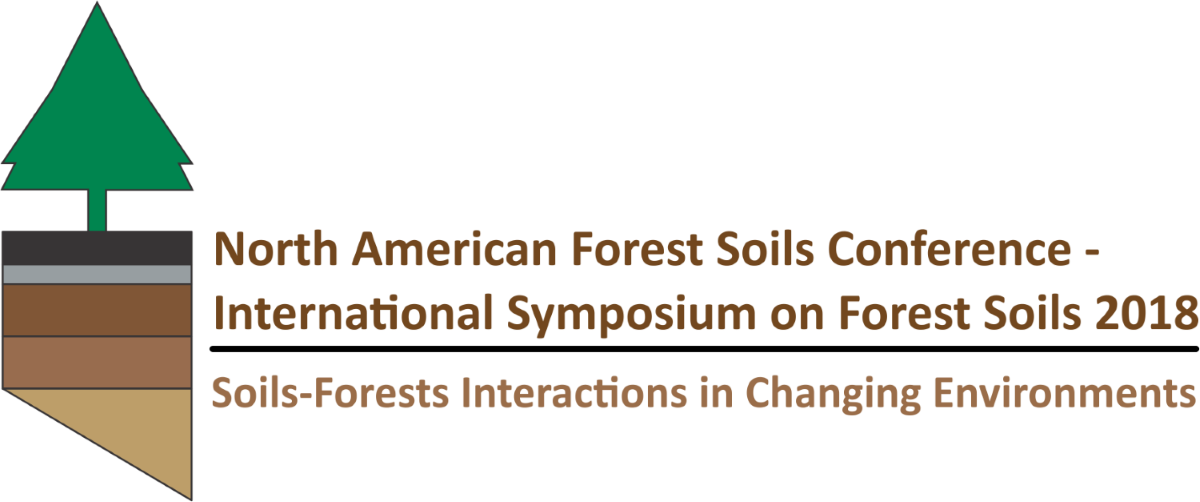
North American Forest Soils Conference - International Symposium on Forest Soils
Conférence nord-américaine sur les sols forestiers - Symposium international sur les sols forestiers
June 10-16, 2018, Quebec City, Quebec, Canada.
Conference Theme
Soils-Forests Interactions in Changing Environments
The 13th North American Forest Soils Conference is being held jointly with the 9th International Symposium on Forest Soils in the UNESCO World Cultural Heritage Site of the Historic District of Old Québec in the spring of 2018. We cordially invite you to consider participating in this conference.
We invite presentations on research using field trials, laboratory investigations, long-term monitoring experiments and ecosystem modelling studies that address the conference theme and sub-themes. If possible, presentations should include a statement of the forest management implications of the work. The conference sub-themes are intended to encourage submissions with broad representation of the various soils-forests regions of North America and internationally.
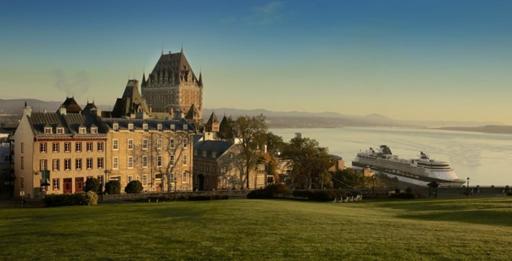
Copyright and credit François Gamache
Thematic Sessions
- The role of forests and forest soils in climate change adaptation and mitigation
This session will examine forest C and nutrient cycling and soil C sequestration under a changing climate. Research focused on the response of soil processes on upland and wetland forests to climate change and best management practices to protect soil carbon stocks will be included in this session. - Technological advances in forest soils research
This session will examine how new emerging technologies have made a difference in the management of forests and forest soils. Advances in research methods from the molecular (soil microbiome, DNA extractions, qPCR) to the landscape (remote sensing, LIDAR, digital soil mapping) level will be included in this session. - Management practices, land-use change and soil-forest productivity
This session will examine the effects of forest management and changing land cover type on soil productivity and biodiversity. Research focusing on intensive biomass harvesting, land reclamation and evaluating site sensitivity to soil degradation will be included in this session. - Societal change and forest soils: a balancing act
This session will examine the challenge of balancing the changing expectations of society with scientific knowledge to form policies, regulations and practices for sustainable forest soil management. Changes in forest soil science research emphasis, such as development of soil health indicators and quantification of ecosystem services, will be highlighted. Communication and outreach strategies that translate research results into science policy that meet current and future needs will be included in this session. - Fire effects on forest soils
This session will examine fire effects on soil processes and the consequences of changing fire regimes on forest soils. Research evaluating how changes in soil processes due to fire impacts affects vegetation communities, carbon and nutrient cycling, and water quality will be included in this session. - Forest soil monitoring networks and environmental change: successes and challenges
This session will examine the design, implementation and results from national, regional and local forest soil monitoring programs. Soil resampling protocols, methodological issues and the significance of these networks in the monitoring of soil under large-scale environmental change will be included in this session.
Keynotes
| Dan Binkley Conference Opening Keynote | Mark Johnston Session Keynote The role of forests and forest soils in climate change adaptation and mitigation | Thomas DeLuca Session Keynote Fire effects on forest soils | Cindy Prescott Session Keynote Management practices, land-use change and soil-forest productivity | ||||
| Nathan Basiliko Session Keynote Technological advances in forest soils research | Bruno De Vos Session Keynote Forest soil monitoring networks and environmental change: successes and challenges | Ellen Bergfeld Session Keynote Societal change and forest soils: a balancing act | Peter Clinton Conference Closing Keynote |
Conference Schedule
| Sunday June 10 | Monday June 11 | Tuesday June 12 | Wednesday June 13 | Thursday June 14 | Friday June 15 | Saturday June 16 | |
| 8h00 | Plenary session | Field excursion | Plenary session | Plenary session | Post conference tour | Post conference tour | |
| 12h00 | Lunch | Lunch | Lunch | ||||
| 13h00 | Plenary session | Plenary session | Plenary session | ||||
| 18h00 | Ice breaker | Free time | Free time | Banquet |
Instructions for presenters
- Oral Presenters - 13 minutes for your presentation and 2 minutes for questions.
- Rapidfire Presenters - 3 minutes for your rapidfire presentation and your poster should be vertically oriented (portrait) and have a maximum width of 36” (90 cm) and a maximum height of 48” (120 cm).
- Poster Presenters - Your poster should be vertically oriented (portrait) and have a maximum width of 36” (90 cm) and a maximum height of 48” (120 cm).
Proceedings of the conference will be published in a special issue of the Soil Science Society of America Journal. All presenters (oral, poster and rapid-fire) are invited to contribute to the special issue. Manuscript submission deadline is August 1st, 2018. More details on the manuscript submission process will be provided at the conference.
History of the NAFSC and ISFS
North American Forest Soils Conferences (NAFSC)
| 1958 - | 1st Conference held at Michigan State University Proceedings published by the Michigan Agricultural Experiment Station |
| 1963 - | 2nd Conference Held at Oregon State University Proceedings published by the Oregon State University Press as Forest-Soil Relationships in North America, edited by Chester T. Youngberg |
| 1968 - | 3rd Conference held at North Carolina State University Proceedings published by the Oregon State University as Tree Growth and Forest Soils, edited by Chester T. Youngberg and Charles B. Davey |
| 1973 - | 4th Conference held at Laval University, Quebec Proceedings published by les Presses de l’Universite Laval as Forest Soils and Forest Land Management, edited by B. Bernier and C.H. Winget |
| 1978 - | 5th Conference held at Colorado State University, Fort Collins, Colorado Proceedings published by Colorado State University as Forest Soils and Land Use, edited by Chester T. Youngberg |
| 1983 - | 6th Conference held at the University of Tennessee, Knoxville Proceedings published by the University of Tennessee as Forest Soils and Treatment Impacts, edited by Earl. L. Stone |
| 1988 - | 7th Conference held at the University of British Columbia, Vancouver, British Columbia Proceedings published by the University of British Columbia, Faculty of Forestry as Sustainable Productivity of Forest Soils, edited by S.P. Gessel, D.S. Lacate, G.F. Lacate, and R.F. Powers |
| 1993 - | 8th Conference held at the University of Florida, Gainesville, Florida, May 9-13 Proceedings published by the Soil Science Society of America as Carbon Forms and Functions in Forest Soils, edited by William W. McFee and J. Michael Kelly |
| 1998 - | 9th Conference held at Granlibakken Conference Center, Tahoe City, California, August 9-14 Proceedings published by Elsevier Forest Ecology and Management as Forest Soils and Ecosystem Sustainability, edited by James R. Boyle and Robert F. Powers |
| 2003 - | 10th Conference held at Algoma’s Water Tower Inn, Sault Ste. Marie, Ontario, July 20-24 Proceedings published by Forest Ecology and Management as Forest Soils Research, Theory, Reality and Role in Technology Transfer, edited by Margaret R. Gale, James R. Boyle and Robert F. Powers |
| 2008 - | 11th Conference held at Virginia Tech University, Blacksburg, Virginia, June 22-26 Proceedings published by Forest Ecology and Management as Forest Soil Science: Celebrating 50 Years of Research on Properties, Processes and Management of Forest Soils, edited by Mary Beth Adams and Scott Chang |
| 2013 - | 12th Conference held at Grouse Mountain Lodge, Whitefish, Montana, June 16-20 Proceedings published by the Soil Science Society of America as The Role of Forest Soils in Sustaining Ecosystem Services, edited by Tom Fox and Ken Van Rees |
| 2018 - | 13th Conference to be held as a joint meeting with ISFS at Chateau Laurier, Quebec City, Quebec. |
| International Symposium on Forest Soils (ISFS) – International Union of Soil Science (IUSS) | |
| 1990 - | 1st Symposium held in Harbin, China, July 22-27 Proceedings published as Forest Soil and Modern Forest Management, edited by Bo-Quin Lin. |
| 1992 - | 2nd Symposium held in Ciudad Guayana, Venezuela, November 22-28 Title: Forest Soils: an Essential Component of Land Management |
| 1995 - | 3rd Symposium held in Balikpapan, Indonesia, October 29-November 3 Title: International Symposium on Soils of Tropical Forest Ecosystems? |
| 2000 - | 4th Symposium held in Vila Real, Portugal, September 18-22 Title: Managing Forest Soils for Sustainable Productivity Proceedings published by Elsevier Forest Ecology and Management as Sustainability of Forest Soils, edited by P.K. Khanna, M. Madeira and A. Fabião |
| 2004 - | 5th Symposium held in Bordeaux, France, September 15-18 Title: Forest Soil Under Global and Local Changes: From Research to Practice. Proceedings edited by Jean-Michel Carnus, INRA? |
| 2007 - | 6th Symposium held in Noosa, Queensland, Australia, August 19-23 Title: Linking Local Management to Global Change Challenges. International Symposium on Forest Soils and Ecosystem Health |
| 2013 - | 7th Symposium held in Shenyang, China, September 17-20 Title: Linking Ecosystem Processes and Management to Forest Biodiversity and Functions |
| 2015 - | 8th Symposium held in Fuzhou, China, October 24-28 Title: Linking Soil Processes to Forest Productivity and Water Protection under Global Change. |
| 2018 - | 9th Symposium to be held as a joint meeting with NAFSC at Chateau Laurier, Quebec City, Quebec. |
Field Visit
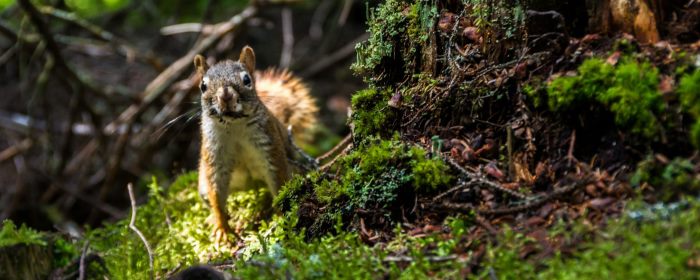
Source: Forêt Montmorency
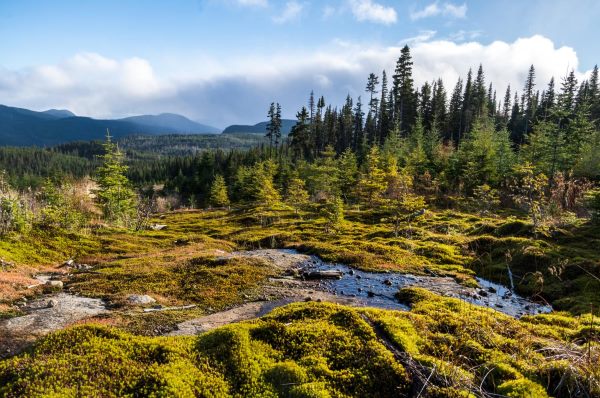
Source: Forêt Montmorency
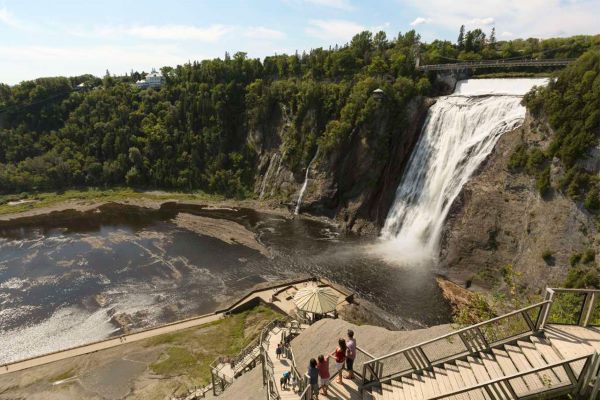
Copyright and credit: J. Robert (Sépaq)
The Quebec City region has a lot to offer in terms of ecological diversity. It is the meeting place of three geological formations (The Appalachian, the St-Lawrence Lowlands and the Laurentians), it is where the saltwater meets the fresh water in the St-Lawrence estuary; it is where the Northern hardwood biome meets the boreal forest. The one day field visit will take you through various ecosystems and the visit will highlight soil type and ecosystem management as well as forest research and will include a visit of the boreal forest of University Laval Montmorency Forest one of the largest teaching and research forests in the world.
Banquet
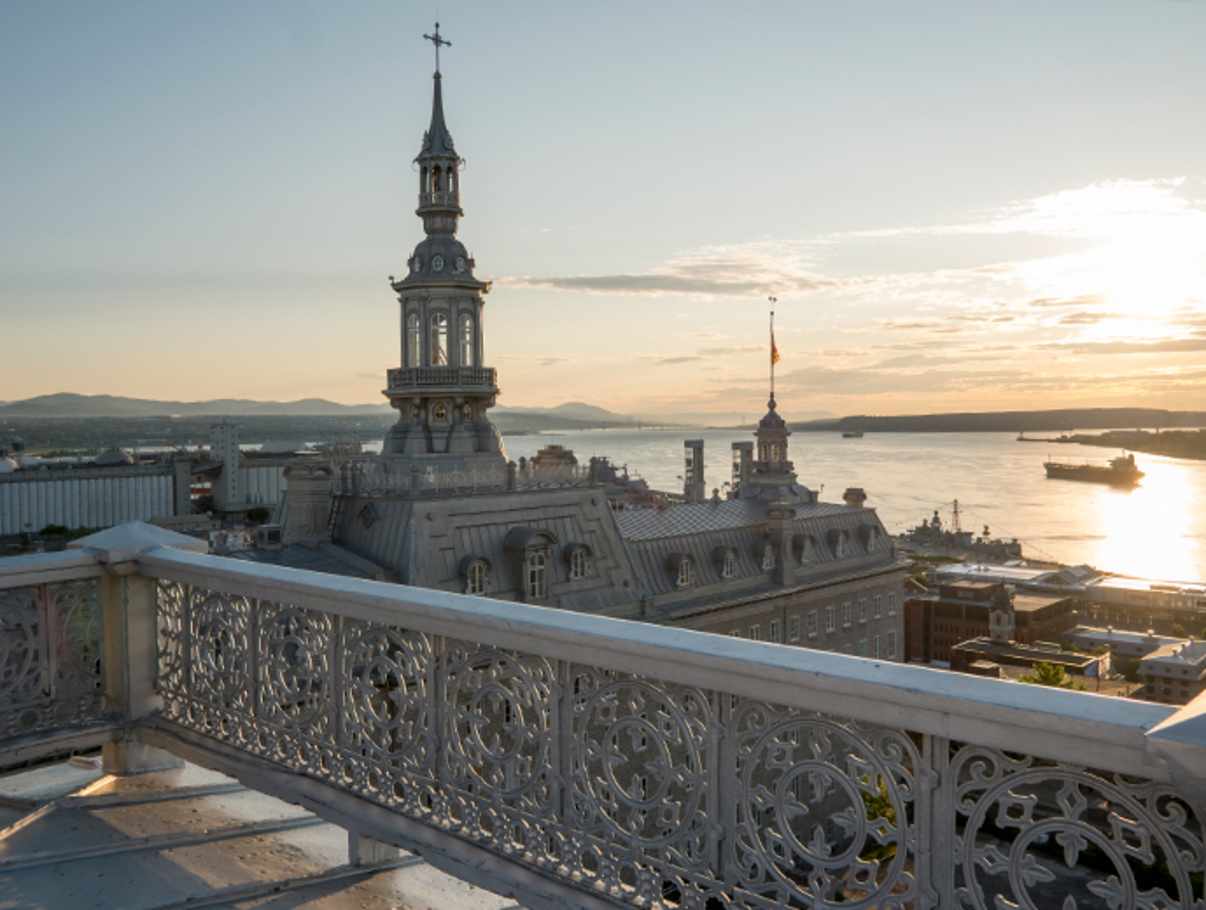
Copyright and credit L-A Couturier
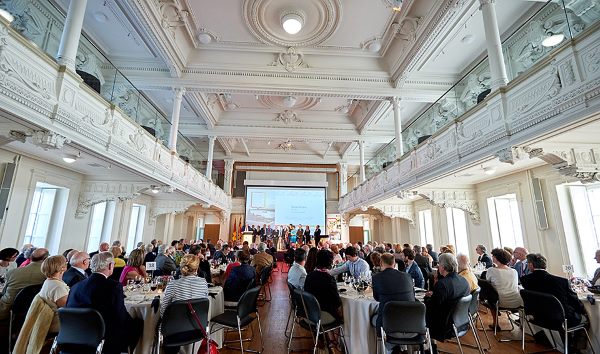
Source: Decorum Quebec
The banquet will take place in the Séminaire de Québec in the old town, at a walking distance from Hôtel Château Laurier. The Séminaire (seminary) was founded in 1663, making it the oldest post-secondary institution in Canada. It gained university status and the power to award degrees by royal charter issued by Queen Victoria in 1852 to become Université Laval. The current building was built in the 1850s.
https://www.salledespromotions.com/ ![]()
Optional Post-conference Tour
The post-conference tour will take you to the Charlevoix region, recognized by UNESCO as a Biosphere Reserve and hosting the 2018 G-7 meeting. The landscape, extending from an elevation of 5 to 1,150 meters above sea level, includes a wide range of ecosystem and soil types ranging from the estuarine tidal flats to mountain tundra and providing spectacular landscapes. The tour will provide an opportunity to appreciate how the climate and the complex geological and geomorphological history of the region (including a large meteor crater, deposits from the Goldthwait sea, major landslides, etc. ) has shaped the ecosystems, the development of the land, and has defined the challenges that lie ahead for the sustainable development of this region in the face of climate change.
Day 1: We will be accompanied by Matthew G. Hatvany, Professor, Department of Geography, U. Laval. (https://www.ggr.ulaval.ca/matthew-hatvany)
Description to be provided soon...
Day 2: We will be accompanied by Serge Payette, Professor, Department of Biology, U. Laval (http://www.cen.ulaval.ca/en/membre.php?id=331946&cat=11&membre=spayette) to visit the boreal and subarctic ecosystems of Les Grands-Jardins. Serge uses ecological and paleo-ecological studies, tree population ecology as well as dendroecology to better understand these ecosystems. We will hike through boreal and subarctic ecosystems and examine plants and soils typical of these environments, which are uncommon at this latitude.
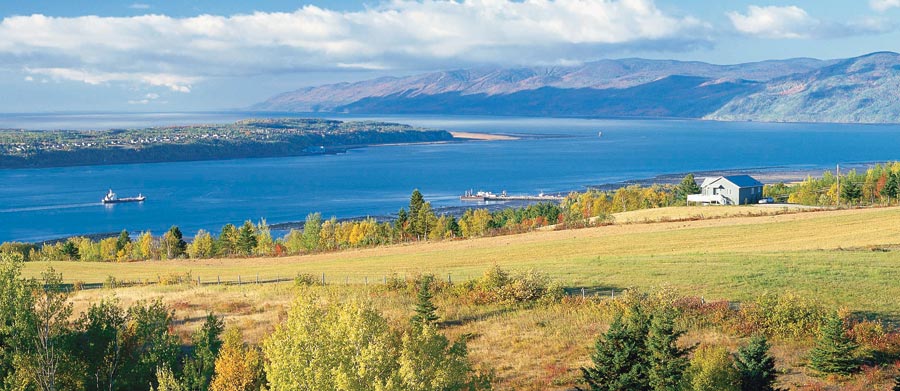
The beautiful Charlevoix region
Copyright and credit J-F Bergeron
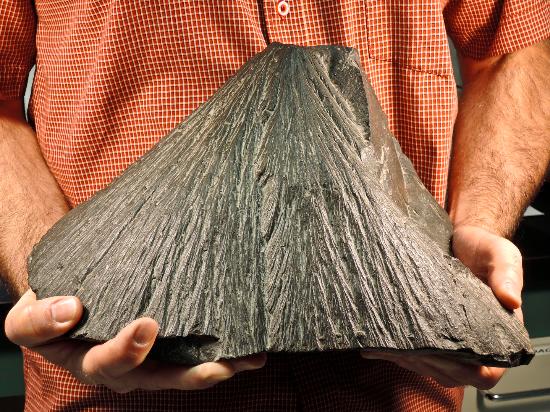
Many shatter cones were found in the area
Source: Wikipedia
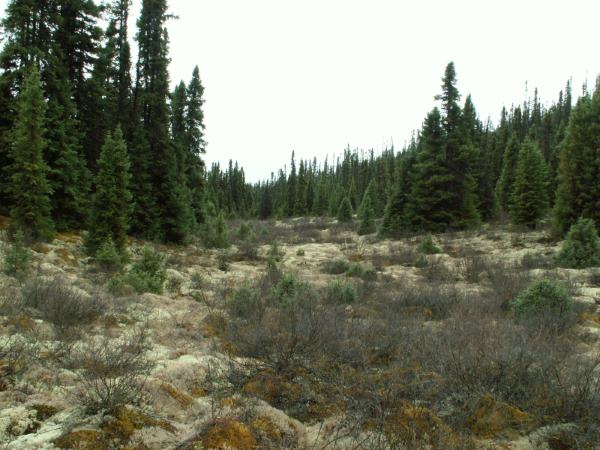
Frost hollow at Grands-Jardins
Source: S. Payette
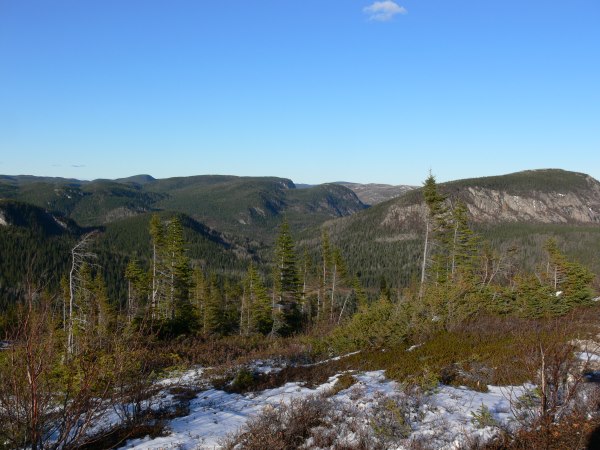
Grands-Jardins National Park
Source: S. Payette
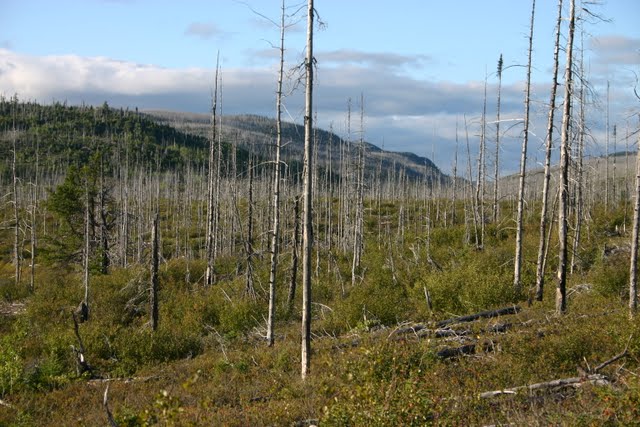
Trees killed by a wildfire at Grands-Jardins
Source: Wikipedia
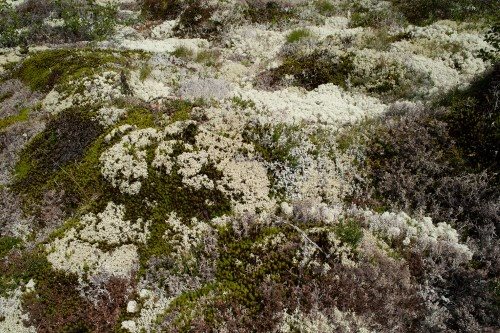
Bryophyte cover
Source: lightbrigade

Sheep laurel (Kalmia angustifolia)
Source: Wikipedia
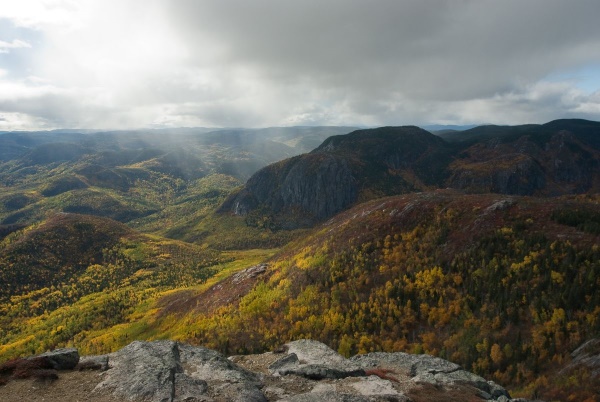
Grands-Jardins National Park
Source: Wikipedia
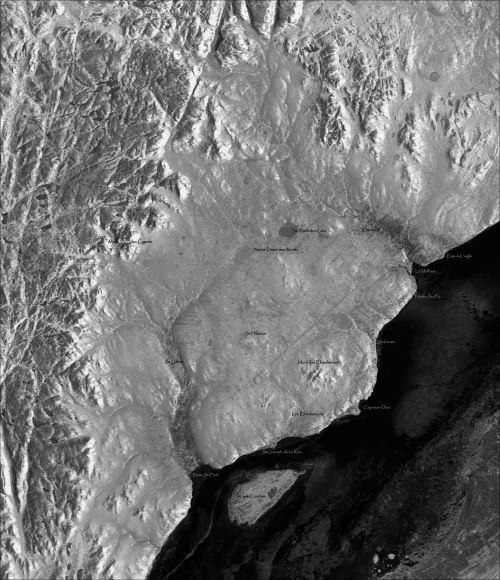
The Charlevoix Astroblem
Source: Wikipedia
Venue/Transport
Hôtel Château Laurier is ideally located in the heart of the city, on Parliament Hill, nestled between the Plains of Abraham, a vast urban park, the lively Grande Allée street and the old city.
This amazing sector is recognized as a UNESCO world heritage site since 1985 and is the birthplace of the French civilisation of North America. To this day, Québec is the only city where the fortification wall remains intact since the 17th century.
Directions
- From the airport - The airport is only a 35-minute drive from the Jean-Lesage International Airport (YQB). Since there is no shuttle service between the airport and Downtown Quebec City, we recommend that you take a taxi available at the airport exit. The fare is set at $34.25.
- From the train station or bus terminal - It is only a 10-minute drive from Gare du Palais, in the Saint-Roch district. There are a few taxis available at the station, if you wish - the fare will be around $10.00. You can also use the city bus service provided by the Réseau de transport de la Capitale - a ticket fare is set à $3.25. You can take the 800 itinerary (toward Pointe-Sainte-Foy) and getting out at stop 1517 (Colline parlementaire), followed by a 10-minute walk in almost a straight line from Louis-Alexandre Taschereau street to George-V Place.
- By car - Use the directions toward Colline parlementaire and Place George-V to get nearby the Hotel. There, you can use the establishment's indoor parking. The average daily cost is $20 (unlimited in/out access) plus applicable taxes.
Accommodation
Hôtel Château Laurier ![]() is the conference site. Please consider booking your room at this hôtel to help the conference. A block of room has been reserved for the conference. The bulk of reserved rooms are standard two double bed room “la Classique” at a rate of 159$ (can); other rooms are also available L’Express* (144$), La Classique (159)$, L’Ultra* (174$), La Comtemporaine (189$) and La Luxueuse* (249$)”; the ones marked with an asterisk do not have two beds. For reservation: phone 1-800-463-4453; Fax : 418-524-8768 or email to reservation@vieuxquebec.com. Cancelation policy: Client must notice before 4PM the date prior to the arrival. In case that this policy is not respected the first night will be billed. Please use confirmation number 16681.
is the conference site. Please consider booking your room at this hôtel to help the conference. A block of room has been reserved for the conference. The bulk of reserved rooms are standard two double bed room “la Classique” at a rate of 159$ (can); other rooms are also available L’Express* (144$), La Classique (159)$, L’Ultra* (174$), La Comtemporaine (189$) and La Luxueuse* (249$)”; the ones marked with an asterisk do not have two beds. For reservation: phone 1-800-463-4453; Fax : 418-524-8768 or email to reservation@vieuxquebec.com. Cancelation policy: Client must notice before 4PM the date prior to the arrival. In case that this policy is not respected the first night will be billed. Please use confirmation number 16681.
Residences of University Laval ![]() , located 15 minutes by bus from the conference site.
, located 15 minutes by bus from the conference site.
Book early!
Travel Information
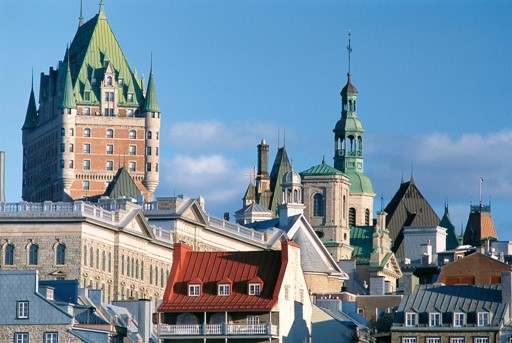
Copyright and credit Claudel Huot
About Québec City
Québec City is 400 years old. It boasts four centuries of history during which Québec has grown into the city we know and love, forging a character all its own built around a thriving culture, economic success, urban transformation, neighborhood life, and the French language.
Getting to Québec City
- By plane - Jean-Lesage International Airport, 16 km (10 miles) away from downtown Québec City. Direct flights from many major cities in Canada, Eastern US, and Europe are provided to Québec City such as Montreal, Ottawa, Toronto, New York, Chicago and Paris.
- By car - Highway 20 (autouroute Jean-Lesage) runs along the south shore of the St. Lawrence River, and Highway 40 (autoroute Félix-Leclerc) is the north shore access to the city.
- By bus - You will be able to get to Québec City using Québec's main transportation companies : Intercar, Orléans Express or Greyhound. There are two bus terminals in the city, Gare du Palais (Saint-Roch) and Terminus Sainte-Foy.
- By train - You can use passenger train to get to Québec City, through VIA Rail. There are two train stations in the city, one in Sainte-Foy, and another in Saint-Roch (Gare du Palais).
For more information about getting to Québec City, you can use the Québec Region Tourism's Office detailed roundup. Getting Around Québec City By bus - Réseau de transport de la Capitale More Information
- Québec City and Area Tourism Office (Tourism Information) http://www.quebecregion.com/en/

- Mobile Applications (Android and iOs) http://www.quebecregion.com/en/mobile-applications/

- A nice blog suggesting things to do in Quebec city (http://toeuropeandbeyond.com/things-to-do-in-quebec-city/
 )
)
Registration and Fees
You can register online until June 10 unless the meeting facility capacity has been reached. You can only pay by credit card.
| Meeting Registration | Early registration rates Before Friday, April 13th, 2018 | Standard registration rates After Friday, April 13th, 2018 |
| Regular | CDN$ 710.00 | CDN$ 850.00 |
| Student (Undergraduate, MSc and PhD) | CDN$ 425.00 | CDN$ 575.00 |
| Companion (Banquet and field excursion) | CDN$ 175.00 | CDN$ 175.00 |
Meeting Registration includes all fees:
- applicable taxes and credit card fees,
- light breakfast and lunch each day of the conference,
- Sunday evening Icebreaker,
- Tuesday full day field excursion,
- Wednesday banquet in the Vieux-Québec,
- beverages, fruits and snacks during all the conference.
Not included:
- The post-conference tour is not included and must be purchased separately.
- Companion registration includes only the full day field excursion on Tuesday, June 12 and the banquet on Wednesday, June 13.
| Post-conference tour Registration
Until capacity is reached (50 participants) | |
| All | CDN$ 280.00 |
Post-conference tour departure will be at 8:00 am from the Chateau Laurier on Friday, June 15th. We will return at 5 PM Saturday, June 16th. Transportation, meals, accommodation are included. We will sleep at the Port-au-Saumon ecological centre. Some rooms will have to be shared. All applicable taxes and credit card charges are included.
Contact/organizers
Scientific Committee
Paul Hazlett (paul.hazlett@canada.ca); David Paré (david.pare@canada.ca); Randall Kolka; Jennifer Knoepp; Andy Scott; Brian Strahm; Charles C Rhoades; Dave Morris; Debbie Dumroese; Jeff Hatten; Jana Compton; Ken Van Rees; Mark Kimsey; Larry Morris; Mary Adams; Michael SanClements; Chandra Neils; Rich Bowden; Stephen Schoenholtz; Tom Fox; Eric Sucre; Jim Boyle; Chris E Johnson; Zhihong Xu.
Local Organization Committee
David Paré, Paul Hazlett, Evelyne Thiffault, Rock Ouimet, Sébastien Dagnault, Jérôme Laganière and Donald Cayer - Program (scientific, field excursion, post-tour, social events).
Student Travel Scholarships
Due to the generous support of the Soil Science Society of America, Weyerhaeuser and the Ontario Ministry of Natural Resources and Forestry we are able to provide scholarships to students who will be making a presentation at the conference. To be eligible you must have submitted an abstract at the conference website before 5 PM Monday, February 5, 2018. To apply for a scholarship please submit a CV and a letter of interest of <500 words to paul.hazlett@canada.ca by March 15, 2018. The letter should state your interest in forest soils in general and your reason for attending the North American Forest Soils Conference - International Symposium on Forest Soils. Applications will be reviewed by the NAFSC-ISFS 2018 Scholarship Committee and successful students will be advised by April 1, 2018. Scholarship funds will be awarded at the conference.
